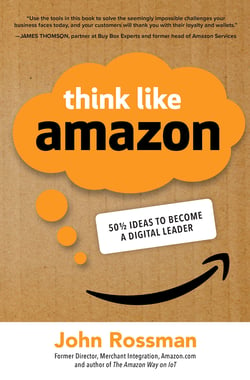 John Rossman in his book, Think Like Amazon: 50 1/2 Ideas to Become a Digital Leader, shares this story about Steve Jobs.
John Rossman in his book, Think Like Amazon: 50 1/2 Ideas to Become a Digital Leader, shares this story about Steve Jobs.
When promoted to vice president at Apple, Jobs would tell employees, if the garbage in his office was not being emptied, he would demand an explanation from the janitor.
“Well, the lock on the door was changed,” the janitor could reasonably respond. “And I couldn’t get a key.”
It’s an irritation for Jobs, but the janitor’s response is reasonable. It’s an understandable excuse. The janitor can’t do his job without the key. As a janitor, he’s allowed to have excuses.
“When you’re the janitor, reasons matter,” Jobs would say.
“Somewhere between the janitor and the CEO, reasons stop mattering.”
The Rubicon of accountability is “crossed when the employee becomes a vice president. He or she must vacate all excuses for failure. A vice president is responsible for any mistakes that happen, and it doesn’t matter what you say.”
The greater the degree of accountability in an organization, the more successful an organization is. Why?
Because accountability drives results!
The People Decision of our Four Decisions focus in Scaling Up deli
It’s one thing to say, “You’re accountable.” It’s another to create a systematic method to allow leaders to better manage and influence key risks so they can deliver hard results and be accountable. What is Amazon’s method?vers the result: A harmonious culture of accountability. There are many ways to ensure accountability including, hiring the right people, Job Descriptions, Meeting Rhythms, OKR’s, and accountability tools.
This is Idea #6 from Think Like Amazon: 50 1/2 Ideas to Become a Digital Leader: Set the expectation that leaders cannot point the finger at others if they don’t achieve the right results. Demonstrate how to better manage dependencies so they can better deliver outstanding results in distributed organizations.

managing dependencies into three easy steps:
YOU OWN YOUR DEPENDENCIES
In a 2003 S Team meeting, Jeff Bezos broke the process of
- Whenever possible, take over the dependencies so you don’t have to rely on someone else.
- If that is impossible, negotiate and manage unambiguous and clear commitments from others.
- Create hedges wherever possible. For every dependency, devise a fallback plan—a redundancy in a supply chain, for example.
At Amazon, success is intrinsically linked to the success your people achieve over the course of their careers.
Amazon manages dependencies in a proactive manner, far beyond normal expectation. This practice resonates with motivated leaders.eers.
How is it accomplished?
Many ways, starting by asking more questions than normal with your colleagues. These questions help minimize the assumptions and surprises.
Second, don’t just trust. Instead, trust and verify.
When you as a leader, are not directly responsible for all outcomes, it is your method of communication and guidance, or lack thereof, that leads to the results.
When this becomes the norm in a company, asking for details is no longer seen as a challenge to someone’s competence. It becomes part of the culture.
DELIVER RESULTS
 Ross notes, Amazon is synonymous with delivering results. Using roughly 120 million square feet of fulfillment centers across the United States, Amazon ships an average of 608 million packages each year.4 That’s about 1,600,000 packages a day. While its delivery times are some of the best in the world, they are experimenting with launching their own delivery service to bypass FedEx and UPS, lower costs, and improve delivery results.
Ross notes, Amazon is synonymous with delivering results. Using roughly 120 million square feet of fulfillment centers across the United States, Amazon ships an average of 608 million packages each year.4 That’s about 1,600,000 packages a day. While its delivery times are some of the best in the world, they are experimenting with launching their own delivery service to bypass FedEx and UPS, lower costs, and improve delivery results.
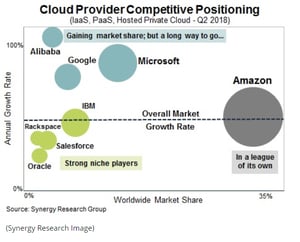 AWS will have generated an estimated $35 billion in net sales in 2019. That was up from $18 billion in 2017. It ranks as one of the most popular public cloud infrastructure and platform services running applications worldwide.5 AWS includes a service-level agreement with its users to maintain a monthly uptime percentage of at least 99.99 percent.
AWS will have generated an estimated $35 billion in net sales in 2019. That was up from $18 billion in 2017. It ranks as one of the most popular public cloud infrastructure and platform services running applications worldwide.5 AWS includes a service-level agreement with its users to maintain a monthly uptime percentage of at least 99.99 percent.
You don’t get these types of results unless you manage dependencies aggressively. And every other Amazon leadership principle simply supports and facilitates this final, crucial principle: deliver results.
Rossman book, Think Like Amazon: 50 1/2 Ideas to Become a Digital Leader is loaded with ideas for learning from Amazon, and great leadership and management practices. One part I really like is at the end of each of the 50 and ½ ideas, Rossman delivers questions to help you think through how you can adapt this idea to your business.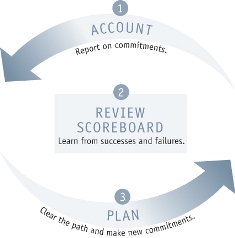
Here are his questions for delivering accountability:
QUESTIONS TO CONSIDER
- Does your team routinely deliver hard results?
- Does your team point at others when results are not delivered?
- Do you manage dependencies in a forthright manner to improve the odds of success?
Do you feel your business has a harmonious culture of accountability?
It’s one way we can help your business deliver results. If not, please contact us today to schedule an exploratory meeting.
Growth demands Strategic Discipline.
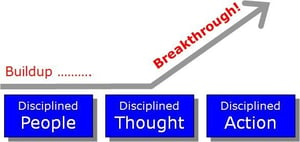 To build an enduring great organization, requires disciplined people, disciplined thought, disciplined action, to produce superior results, and make a distinctive impact in the world.
To build an enduring great organization, requires disciplined people, disciplined thought, disciplined action, to produce superior results, and make a distinctive impact in the world.
Discipline sustains momentum, over a long period of time, laying the foundations for lasting endurance.
A winning habit starts with 3 Strategic Disciplines: Priority, Metrics and Meeting Rhythms. Forecasting, accountability, individual, and team performance improve dramatically.-2.jpg?width=300&name=3%20Disciplines%20of%20Execution%20(Strategic%20Discipline)-2.jpg)
Meeting Rhythms achieve a disciplined focus on performance metrics to drive growth.
Let Positioning Systems help your business achieve these outcomes on the Four most Important Decisions your business faces:
|
DECISION |
RESULT/OUTCOME |
|
PEOPLE |
|
|
STRATEGY |
|
|
EXECUTION |
|
|
CASH |
|
Positioning Systems helps mid-sized ($5M - $250M) business Scale-UP. We align your business to focus on Your One Thing! Contact dwick@positioningsystems.com to Scale Up your business! Take our Four Decisions Needs Assessment to discover how your business measures against other Scaled Up companies. We’ll contact you.
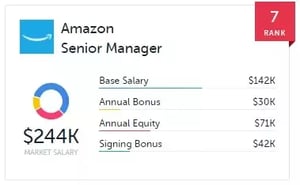 NEXT BLOG – Rewards and Compensation
NEXT BLOG – Rewards and Compensation
When your business delivers results like Amazon does, you need to compensate achievers. How does Amazon do this, and what can you learn from their methods, next blog.






.jpeg?width=150&height=135&name=Hand%20with%20marker%20writing%20the%20question%20Whats%20Next_%20(1).jpeg)

